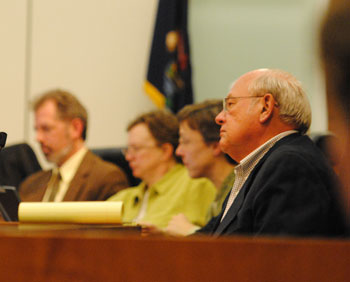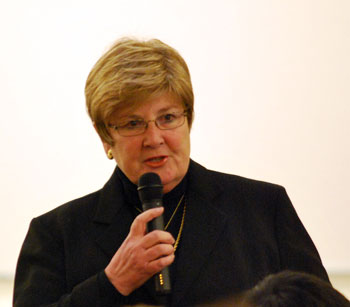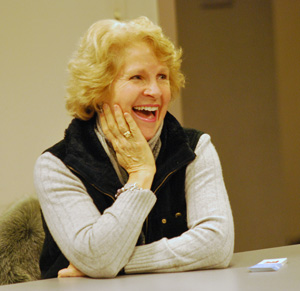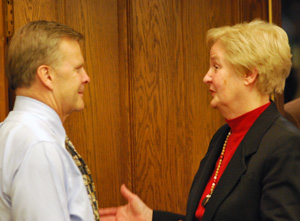At its March 7, 2011 meeting, the Ann Arbor city council again delayed consideration of a set of licensing requirements for medical marijuana businesses. The council has now delayed its initial vote on the licensing requirements at five meetings, dating back to Dec. 6, 2010. The postponement was until March 21, 2011, the council’s next meeting.
At the March 7 meeting, the council undertook several additional amendments to the licensing proposal. But ultimately they elected to postpone in the face of several unresolved issues. Christopher Taylor (Ward 3) was the sole vote against the postponement to March 21.
The vote that was again postponed is the first of two votes the council must take on any new ordinance it enacts. At its meetings over the last few months, the council has heard extensive public commentary on medical marijuana, but that commentary does not constitute a formal public hearing, which will be held at the same meeting when the council votes on final approval of the licensing, provided it eventually gives initial approval to the licensing system.
At its Oct. 18, 2010 meeting, the council gave its initial approval to a set of zoning regulations for medical marijuana businesses, but it has not yet given its final approval to those regulations. The council’s strategy is to bring licensing and zoning forward at the same time for a final vote.
The context for development of zoning regulations was set at the council’s Aug. 5, 2010 meeting, when councilmembers voted to impose a moratorium on the use of property in the city for medical marijuana dispensaries or cultivation facilities, and directed its planning commission to develop zoning regulations for medical marijuana businesses. Subsequently, the city attorney’s office also began working on a licensing system.
At its Jan. 3 meeting, the council heavily amended the licensing proposal, removing home occupation businesses from licensing requirements. At its Jan. 18 meeting, the council was poised to undertake further amendments to the licensing proposal, including many that concerned limiting the amount of information that is required to be divulged by those associated with license applications. However, the council did not amend the proposal further at that meeting. The council undertook additional amendments to the licensing proposal at its Feb. 7, 2011 meeting.
The moratorium on additional facilities in the city to be used as medical marijuana dispensaries and cultivation facilities was extended by the council at its Jan. 18 meeting to go through March 31, 2011. Extension of the moratorium will be addressed at the next council meeting on March 21.
This brief was filed from the boardroom in the Washtenaw County administration building, where the council is meeting due to renovations in the city hall building. A more detailed report will follow: [link] [Full Story]









